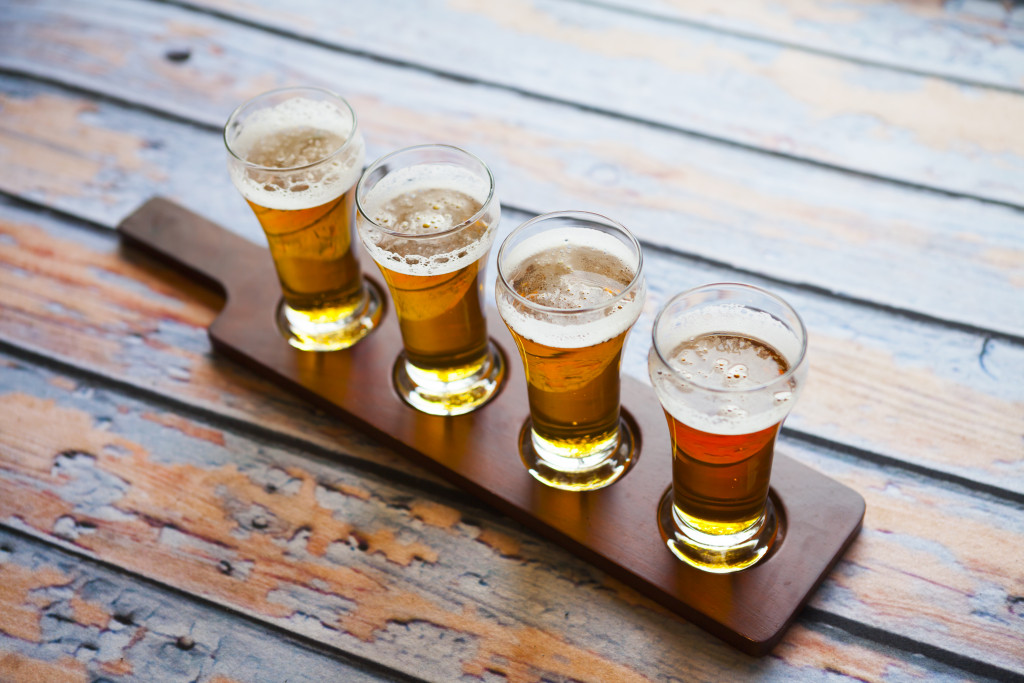According to the Brewers Association, there were 7,480 craft breweries in the United States as of 2018. That number has only gone up in recent years, and there’s no sign of slowing down anytime soon. The craft beer industry is booming, and a big part of that is thanks to the technologies helping breweries excel. Let’s take a look at a few of those technologies now.
Cloud Brewing Technology
Craft breweries increasingly turn to cloud-based brewing technology to help streamline their operations. Cloud brewing software helps breweries manage every aspect of their business, from inventory and order to sales and marketing. But, perhaps most importantly, it allows breweries to track their production data and make real-time adjustments based on that data. That kind of visibility and control is critical for any business, but it’s essential for craft breweries which often have to deal with large batches and numerous variables.
Canning Services
Mobile canning lines and services are another technology helping craft breweries excel. In the past, canning beer was a time-consuming and expensive process that required a lot of expensive equipment.
Today, some companies will come to your brewery and do all the work for you. That means you don’t have to invest in equipment or worry about the logistics of canning your beer. And because mobile canning services use state-of-the-art equipment, you can be confident that your beer will be canned quickly and efficiently.

Keg Washers
Keg washers are another vital piece of brewing equipment that’s become more affordable in recent years. In the past, keg washers were built into the brewery’s wall, making them very expensive. Today, however, you can buy standalone keg washers for a fraction of the price. That’s helped many small breweries get started without breaking the bank.
Keg tracking systems
Finally, keg tracking systems are becoming more common in craft breweries. Keg tracking systems help breweries keep track of their kegs, so they know where they are at all times. That’s important because it allows breweries to avoid losing or stealing barrels. Keg tracking systems also help breweries monitor how much beer is left in each keg so they can plan accordingly.
Brewery Equipment
Back during the time of the Romans, people had to brew using whatever equipment was at hand. Unfortunately, that led to many miscalculations. Modern breweries use specialized, high-tech brewing equipment to precisely control the brewing process and create consistently delicious beer. Here are three available brewery equipment today.
Valve Diagnostics
Breweries produce a lot of excess CO2 during the brewing process. This can lead to issues with valves, causing leaks or poor flow rates. Valve diagnostics helps breweries find and fix these problems promptly, ensuring they get their money’s worth out of their brewery equipment. Additionally, specific methods, such as isolation valve diagnostics tools, can help brewers catch more minor issues before they become big ones. These isolate valves with a significant pressure drop to determine the location of any leaks.
Fermentation Control
Fermentation is the process of converting starches into alcohol. It’s a complicated brewing process requiring specialized equipment to accurately monitor temperature, pressure, CO2 levels, and more. Fermentation control allows brewers to carefully monitor their beer as it’s fermenting to achieve precisely the results they desire.
Pasteurization Systems
To ensure their beer lasts on the shelf, breweries use pasteurization systems to kill harmful microorganisms. Pasteurization is a two-step process that involves heating and cooling. The first step requires flash pasteurization for about 5-15 seconds, followed by a gradual cooldown. Many modern brewing equipment manufacturers offer automated systems that simultaneously do both steps.
Digital Marketing Tools
Craft breweries can’t contend against the budget of Big Beer. However, they can use digital marketing tools to improve their bottom line and connect with customers. One tool that’s especially popular today is social media management software. This allows breweries to simultaneously manage their social media accounts and schedule posts in advance.
Many businesses, including craft breweries, are getting more sophisticated about the data they collect on their customers. For example, many companies are using loyalty rewards programs to encourage repeat business from loyal customers. This helps reduce advertising costs since it’s cheaper to reward current customers than attract new ones. Additionally, businesses can better understand their customers by knowing what offers and discounts most appeal to them.
These are just a few of the technologies that are helping craft breweries excel in today’s market. As the craft beer industry continues to grow, people expect to see even more technological advances to help brewers produce high-quality beer more efficiently than ever before. Cheers!


